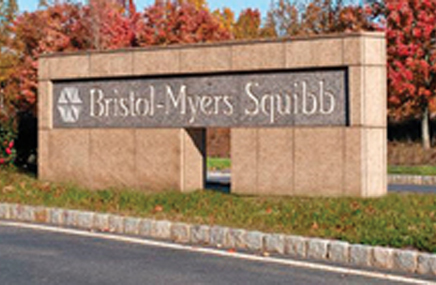Bristol-Myers Squibb’s immuno-oncology portfolio cleared a major hurdle yesterday. The drugmaker cut short a Phase-III trial for anti PD-1 nivolumab after an independent data monitoring committee’s analysis showed superior overall survival for the drug, vs. chemo, in patients with advanced untreated melanoma.
Analysts commented that the early stoppage bodes well for other oncology segments the drug is being tested in, such as second-line treatment for non-small cell lung cancer and kidney cancer, and that it could hasten the pathway to approval in the US, despite the fact that the trial used no US study sites, according to clinicaltrials.gov.
Leerink analyst Seamus Fernandez, in an investor note, heralded the news as a “major milestone” for the drug and the immuno-oncology category overall.
In Fernandez’s view, there are three major repercussions of the BMS announcement: CheckMate -066 is the first trial to show a survival benefit for any PD-1 antibody; it will likely inform the drugmaker’s submission for the EU and Canada—which may confer an edge in those markets against Merck’s anti PD-1 pembrolizumab; and its early finish could bode well for the drug’s ongoing survival studies in other therapeutic categories.
Another analyst, Credit Suisse’s Vamil Divan, wrote that the trial’s early conclusion could help the drug’s avenue to approval in the US. “[CheckMate -066 is] likely [to] position Bristol-Myers Squibb as the first anti-PD-1 agent approved outside the US, however, we think could FDA could accept [the trial’s results] as well.
“We think that the FDA could also initiate a registrational pathway in the US based on this trial, particularly given nivolumab’s favorable [Fast Track] status and prior precedent in terms of allowing Merck to register its anti-PD1 pembro based on Phase-I and Phase-II data,” Divan added. Merck’s pembro’ is expected to be approved in the second half of this year.
That was a point which ISI analyst Mark Schoenebaum also touched on in his note from Tuesday evening: “We believe based on the positive Phase III data reported today the probability of being able to file nivolumab in melanoma by year end 2014 is higher,” than the firm’s earlier expectations of 2015.
Divan noted, however, that Merck’s pembro’ will still likely have a “9-month lead time” in the US. But farther down the line, the analyst foresees BMS “as having the lion’s share in advanced melanoma”—owing to its “extremely positive recent data released with the regimen”—and its regimen likely becoming a first-line treatment, whereas Merck’s is expected to receive a second-line indication.








